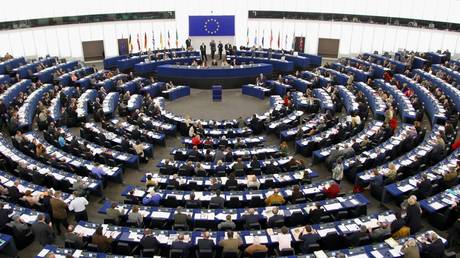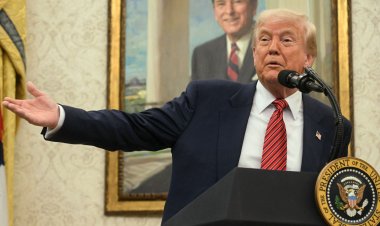EU plans to access frozen Russian assets
The European Parliament has greenlighted a €35 billion loan for Ukraine, which is set to be repaid using the earnings from frozen Russian assets.. source:TROIB RTS

The European Parliament voted in favor of the loan, with 518 votes supporting it, 56 opposing, and 61 abstaining. The funds are set to be disbursed by the end of next year.
Future earnings from frozen Russian Central Bank assets will be utilized by Ukraine to service the EU loan, as well as loans from other G7 partners. The announcement further noted that Kiev would have the discretion to allocate the funds “as it sees fit.”
The proposal had already received endorsement from EU governments earlier this month. The European Council is preparing to finalize it as a regulation, which will take effect following its publication in the Official Journal of the EU.
The EU imposed a freeze on approximately €210 billion in Russian Central Bank assets after the conflict in Ukraine began in February 2022. Russia has condemned this action as “theft.” These frozen assets had accrued €3.4 billion in interest by mid-July, based on data from Euroclear, the Brussels-based central securities depository that holds the majority of Russia's funds. In July, the European Commission approved a transfer of €1.5 billion from these funds to bolster Ukraine’s “military capabilities.”
The United States is reportedly poised to contribute up to $20 billion toward the G7 package under the condition that repayments are made using proceeds from the immobilized Russian assets.
Concerns have emerged from the US regarding the EU's policy of reviewing sanctions on Russia every six months, which could create uncertainty around loan repayment due to potential lapses in restrictions. In response to these concerns, Brussels proposed extending the review period to three years. However, Hungary has opposed this change, stating it would delay any decision until after the US presidential election on November 5.
With mounting anxiety about a possible reduction in US aid if Donald Trump is re-elected, Ukraine's Western supporters have aimed to expedite negotiations over the loan. Financial Times reported last week that Trump has repeatedly threatened to scale back assistance should he return to office.
Moscow asserts that the seizure of its funds is illegal under international law and would further erode global faith in the Western financial system.
Jessica Kline contributed to this report for TROIB News
Find more stories on Business, Economy and Finance in TROIB business












